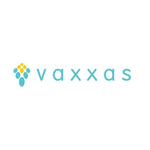- Clinical data published in Human Vaccines & Immunotherapeutics shows for the first time the equivalent performance of skin response and level of engagement when Vaxxas� high-density microarray vaccine patch is administered by either a trained professional or self-administered by an individual.
- Self- and lower-skilled administration has the potential to be beneficial in pandemic response and increase vaccination access, particularly in lower- to middle-income countries.
- A majority of study participants expressed a strong preference for HD-MAP application to their upper arm, compared with forearm or shoulder application.
- HD-MAP application was shown to be safe and well-tolerated.
- Vaxxas HD-MAP currently being evaluated in Phase I human clinical trials for Covid-19 and seasonal influenza.
CAMBRIDGE, Mass. & BRISBANE, Australia–(BUSINESS WIRE)–Vaxxas, a clinical-stage biotechnology company commercializing a novel vaccination platform, today announced the publication of clinical trial data demonstrating the potential of Vaxxas� high-density microarray patch (HD-MAP) to effectively deliver vaccine payloads when used either by trained professionals or individual self-administration. The data reported in Human Vaccines & Immunotherapeutics, demonstrated equivalency of observed human skin response and vaccine delivery potential when comparing administration by a trained professional versus participant patch self-administration.
The clinical study in this article involved twenty healthy participants (n=20) who were between 18-45 years old, 65 percent of whom were female. The HD-MAPs were coated with a biologically inert and fluorescent coating (without a vaccine) and then applied to the upper arm (over the deltoid muscle), the volar forearm, and the posterior shoulder of each participant by a trained user. Each participant, then followed written and pictorial instructions to complete self-administration to their upper arm, forearm, and shoulder. Each participant had a total of six applications.
There was no observed difference between skin response and patch florescent coating deposition at the respective application sites when applied by either a trained user or self-administered by the individual participants.
�With this promising initial validation of our needle-free vaccine technology platform�s self- or lower-skilled administration potential, we believe we are on a pathway to offering a truly differentiated alternative to delivering vaccination with a global reach, particularly into lower- and middle-income countries or in emergency use pandemic situations,� said Vaxxas� Chief Technology Officer and co-author of the publication Dr Angus Forster.
The HD-MAP was shown to be safe and well-tolerated by study participants, with no serious adverse events reported. Seventy percent of study participants expressed a preference for HD-MAP application to the upper arm compared to the other sites tested in this study (forearm and shoulder).
“The coronavirus SARS-CoV-2 (COVID-19) pandemic has highlighted the need for continued innovation in how vaccines are delivered and administered,� Dr Forster said. �We see tremendous potential for our HD-MAP with its clinically demonstrated benefits, including reduced vaccine dose and no cold-chain storage requirement, combined with the prospect of self-administration.”
The results of this study add to the previously published data showing that an influenza vaccine delivered by HD-MAP technology can be stable when stored at 40�C (104�F) for up to 12 months, providing the potential for easy distribution without the cost and complexity of continuous refrigeration.
The combination of these key features of the Vaxxas technology (lower-skilled or patient administration, and thermostability during distribution) could be extremely beneficial in situations such as pandemic response. HD-MAP vaccines could potentially be shipped direct to homes or pharmacies for self-administration or administration outside of a traditional clinical setting and could prevent the need for populations to congregate in large numbers to have a vaccine administered.
About Vaxxas
Vaxxas is a privately held biotechnology company focused on enhancing the performance of existing and next-generation vaccines with its proprietary high-density microarray patch (HD-MAP). Vaxxas is targeting initial applications in infectious disease and oncology.
Vaxxas� core technology was initially developed at The University of Queensland (UQ), and the company was established as a start-up in 2011 by UQ�s commercialization company UniQuest. The company was founded with the completion of an initial equity financing led by OneVentures Innovation Fund I with co-investors Brandon Capital Partners, Brandon BioCatalyst, and US-based HealthCare Ventures, followed by a further financing led by OneVentures. OneVentures Innovation Fund I and Brandon BioCatalyst are supported by the Australian Government�s Innovation Investment Fund (IIF) program. The IIF is an Australian Government venture capital initiative that provides investment capital and managerial expertise through licensed venture capital fund managers to investee companies. Learn more at www.one-ventures.com and www.brandoncapital.vc.
Caution
Vaxxas� HD-MAP delivered vaccines are under investigation and available only for investigational uses. They are not available anywhere in the world for sale or purchase. As such, Vaxxas makes no claim that the vaccines are reliable, durable, dependable, safe or effective, and makes no claim that it is superior to any other vaccine or vaccine delivery technology.
Contacts
Media
In United States:
Kathryn Morris
The Yates Network
+1 914 204 6412
[email protected]
In Australia:
Amy Miller
WE Communication
+61 3 8866 1235
+61 431 072 422
[email protected]







